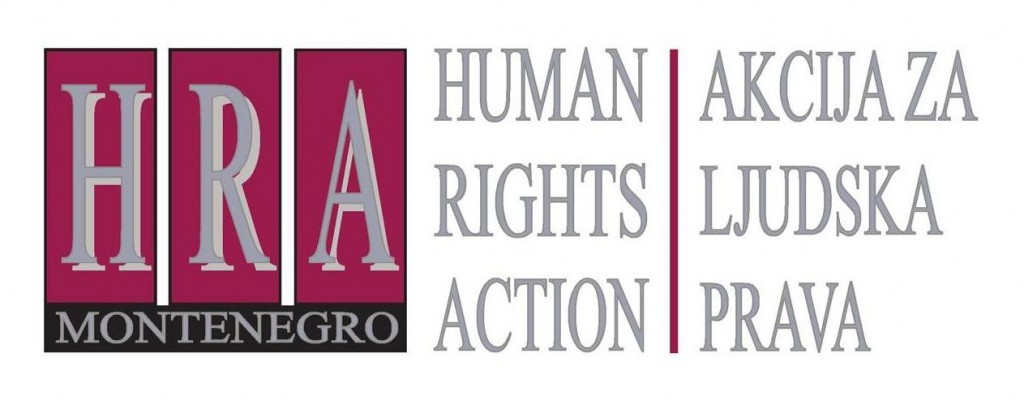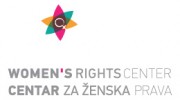28/7/2015 – REGARDING VERIFICATION OF LEGAL BASIS FOR LIVING IN OBJECTS OWNED BY MUNICIPALITY OF NIKŠIĆ
28/07/201527/08/2015 – On the occasion of breaking into a vehicle of daily Dan
27/08/201529/7/2015 – MONTENEGRO BAR ASSOCIATION SUPPORTS UNPROFESSIONAL EX OFFICIO DEFENCE


 NGOs Human Rights Action, Women’s Rights Center and Women’s Safe House assess that the Montenegro Bar Association supports unprofessionalism of attorneys providing ex officio defence by denying its competence to determine liability of attorney who failed to take any action to defend his client, although he had been paid to act by taxpayers money. We are stunned by such decision of the Bar Association, of which we expected to vigorously protect the ethics of the profession, which, we believe, the majority of its members respects.
NGOs Human Rights Action, Women’s Rights Center and Women’s Safe House assess that the Montenegro Bar Association supports unprofessionalism of attorneys providing ex officio defence by denying its competence to determine liability of attorney who failed to take any action to defend his client, although he had been paid to act by taxpayers money. We are stunned by such decision of the Bar Association, of which we expected to vigorously protect the ethics of the profession, which, we believe, the majority of its members respects.
The Deputy Disciplinary Prosecutor of the Bar Association, attorney Nikola Medojević, rejected our complaint against attorney Boško Laličić, filed because he provided no defence to Moldovan women Svetlana Čabotarenko (S.Č.) in a criminal proceeding conducted against her by private plaintiffs Zoran Piperović and Ekrem Jasavić. In the reasoning of the Decision (attached), Medojević emphasized that “neither the Bar Association authorities nor Disciplinary Prosecutor are competent, as a supervising authority, to evaluate appropriateness of taking or not taking individual actions in a number of cases in which attorneys act on a daily basis before courts.”
NGOs Human Rights Action, Women’s Rights Center and Women’s Safe House filed in December 2014 a complaint against attorney Boško Laličić because he has, acting ex officio, only figured in the proceedings and did nothing to defend his client, which was then sentenced in absentia to imprisonment, although the Code of Professional Ethics obliges an attorney in each case, even in ex officio proceedings, to exercise and protect the client’s interests, the interests of justice and contribute to the rule of law and a society based on respect for the law by their professional and other public activities and personal example, while at the same time they are required to perform their profession in a considerate, conscientious, decisive and timely manner, with honesty to the client, with full commitment to the case entrusted to him/her and using all his/her knowledge and skills and all legally permissible and reasonable means.
We remind that attorney Laličić:
1) Failed to propose any evidence in favour or question evidence against his client;
2) Disputed none of the evidence presented against his client;
3) As the closing argument stated solely “I trust the Court to adopt of a lawful decision”;
4) Failed to appeal the first instance decision finding his client guilty and sentencing her to a suspended prison sentence;
5) In response to the prosecutors’ appeal, insisting on a more stringent punishment, he failed to propose to the court to reject the appeal, but only laconically stated that he sought “justice and legality”. His client was then sentenced to one year in prison.
Attorney Laličić acted in such a manner representing the Moldovan woman who testified as a victim of trafficking in human beings and forced prostitution in a criminal proceeding, which termination without indictments in 2003 was criticized by the investigative judge leading the investigation in the case and a group of Council of Europe and OSCE experts. We believe that such action of the Bar Association, as well as the prior refusal of the Judicial Council to initiate proceedings for determining disciplinary liability of a judge acting in this case, additionally deters victims of trafficking in human beings and forcing to prostitution to seek protection from the state of Montenegro.
We believe that the Disciplinary Prosecutor of the Bar Association had to explain in the Decision rejecting the complaint against the attorney why he believed that the attorney performed his profession considerately and conscientiously (in accordance with the Code of Professional Ethics of Attorneys) if he did not present a single evidence in favour of his client, although these were obviously available? Why did he believe that the attorney acted in a decisive manner when he disputed none of the evidence presented against his client? Why did he believe that the attorney acted with honesty to the client when he failed to appeal against the decision, although he knew that his client was facing imprisonment? Why did he consider all things above stated as full commitment to the case with usage of all knowledge and skills?
We are utterly concerned by the fact that the Bar Association of Montenegro considers that such behaviour and performance of profession should represent an example of ethical behaviour for all its members who should one day act as attorneys at law in the European Union.
Especially concerning is the principle of placing the responsibility for determining violations of the standards of the legal profession to the court, which is present in the reasoning of the Decision on rejecting the complaint – the fact that the first and second instance court failed to establish that the defendant was not provided with effective defence, was a sufficient proof for the Bar Association that there are no elements of violation of disciplinary liability under the rules of the profession which it prescribed. Such position undermines the sense of extraordinary legal remedies, constitutional complaints and applications to the European Court of Human Rights, filed by members of the Bar Association on a daily basis, with reasonable belief that the courts in Montenegro sometimes make mistakes.
We remind that we filed complaints against all judges acting in this case, and that we requested the Supreme State Prosecutor to file a request for protection of legality to the Supreme Court against the final decision. The Disciplinary Prosecutor of the Bar Association could have requested additional explanations and evidence from the complainants or other state bodies, natural or legal persons, which he failed to do in this case, but rejected instead the complaint based on an „email statement“ of the attorney which was three sentences long. Attorney Laličić commented on our complaint with the following words: “This is not and cannot be a complaint. There is no material or formal legal basis. Therefore, essentially, they are nonsense, of course”. (Consult the attached Decision).
We remind that our complaints on the work of judges of Basic and the High Court in Podgorica were ignored by the president of the Commission for Judicial Code of Ethics, Dobrica Šljivančanin, as well as the Basic Court in Podgorica president, Zoran Radović, who never replied to the complaint. A fact worth noting is that a member of the Commission for Judicial Code of Ethics is also Hasnija Simonović, one of the judges against whom we filed a complaint in this case as well.
The Judicial Council refused to act in accordance with its competence to consider complaints against judges, claiming it has no duty to consider complaints to work of judges in a terminated proceeding, although the Law does not contain such provision.
We expect that at least the Supreme State Prosecutor will not run away from this case, which obviously represents a “hot potato” due to the attitude of the Prime Minister that the Moldovan woman acted in a constructed affair against the interests of Montenegro. We hope that the Supreme State prosecutor will file a request for protection of legality to the Supreme Court against the final decision according to which the accused Moldovan, Svetlana Čabotarenko (S.Č.) has been sentenced in absentia in October last year to one year imprisonment, in a proceeding in which she received practically no defence. We remind that the final judgment contains bluntly bias positions of the Basic Court in Podgorica judge, Goran Đuković, which undermine the confidence into judicial independence in Montenegro (the judgment and its analysis is available at: /?p=7897).
The final judgment against S.Č. and its analysis are available here.
The complaint to the Bar Association of Montenegro against attorney Boško Laličić (in Montenegrin)is available here.
The Decision of the Bar Association (in Montenegrin) is available here, and the version in English is available here.
Tea Gorjanc-Prelević, executive director Human Rights Action
Ljiljana Raičević, executive director Women’s Safe House
Maja Raičević, executive director Women’s Rights Center







 English
English